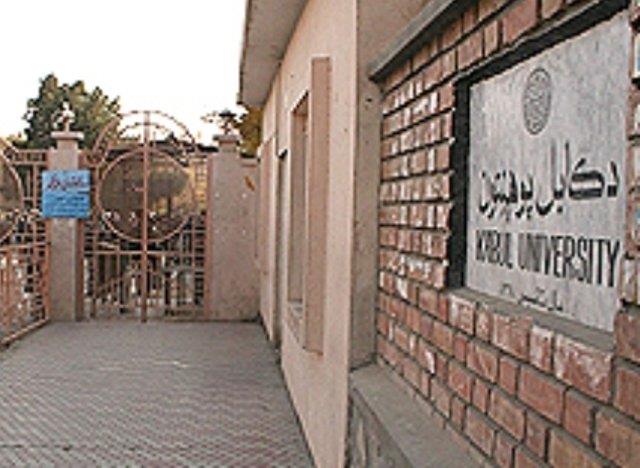Afghanistan Among World's Lowest In Academic Freedom, Scholars At Risk Report Shows
The Free to Think 2025 report, released today, October 1, 2025, by Scholars at Risk (SAR), warns that Afghanistan's higher education system remains“completely restricted,” with the Taliban continuing to impose ideological control and eliminate women's right to education.
According to the Academic Freedom Index (AFi), Afghanistan scored just 0.08, reflecting one of the lowest levels worldwide. The report stresses that since the Taliban takeover in 2021, the steepest declines have been in institutional autonomy and freedom of academic and cultural expression.
The Taliban's tactics to silence dissenting voices intensified during the reporting period. On December 1, 2024, Professor Hassamuddin Rahimzai of Sheikh Zayed University was beaten unconscious by Taliban guards after objecting to a new faculty evaluation process aimed at replacing academics with madrasa-trained loyalists. He was later detained and reportedly tortured.
Later that month, 12 professors from Sayed Jamaluddin Afghani University in Kunar were forced to resign for opposing Taliban ideology. Around the same time, new restrictions barred Afghan lecturers from traveling abroad for education or training without written approval from Taliban Supreme Leader Mullah Haibatullah.
In April and May 2025, the Taliban initiated sweeping faculty purges across Afghanistan universities. While described officially as part of a 14 percent staff reduction, dismissals disproportionately targeted women, Hazaras, and other minorities. At Bamiyan University, more than 50 staff were dismissed, while Sheikh Zayed University saw around 120 employees removed.
The crackdown on women's education deepened. On December 3, 2024, the Taliban banned women from pursuing medical studies, including midwifery and nursing - the last higher-education fields available after earlier restrictions. Human Rights Watch warned that the decision would worsen women's health outcomes, leaving many without female medical professionals.
International factors compounded the crisis. In February 2025, over 80 Afghan women studying STEM in Oman under USAID scholarships were told their funding was withdrawn. Although briefly extended, the program was abruptly canceled in April, leaving many stranded without legal protections or a path to complete their studies.
The American University of Afghanistan (AUAF), operating in exile in Qatar, suspended its Spring 2025 semester amid U.S. funding cuts. Similarly, the Asian University for Women in Bangladesh halted admissions for 330 Afghan women when U.S. support was suspended. Both decisions disrupted crucial educational lifelines for Afghan students.
The Free to Think 2025 report concludes that Afghanistan is among the most repressive countries for higher education today. Ideological purges, gender bans, and suppression of minority voices have extinguished the last spaces for academic freedom.
Combined with U.S. funding cuts to international programs, Afghan students, particularly women and minorities, are left without hope of pursuing education at home or abroad. Scholars at Risk warns that without urgent international support, Afghanistan's academic future faces near-total collapse.
ShareFacebook Twitter WhatsApp Email Print Telegram
Legal Disclaimer:
MENAFN provides the
information “as is” without warranty of any kind. We do not accept
any responsibility or liability for the accuracy, content, images,
videos, licenses, completeness, legality, or reliability of the information
contained in this article. If you have any complaints or copyright
issues related to this article, kindly contact the provider above.
Most popular stories
Market Research

- Seoul Exchange, One Of Only Two Licensed Platforms For Unlisted Securities, Will Exclusively Use Story To Settle Tokenized Rwas
- Phase 6 Reaches 50% Mark As Mutuum Finance (MUTM) Approaches Next Price Step
- 0G Labs Launches Aristotle Mainnet With Largest Day-One Ecosystem For Decentralized AI
- Solotto Launches As Solana's First-Ever Community-Powered On-Chain Lottery
- Kintsu Launches Shype On Hyperliquid
- Blockchainfx Raises $7.24M In Presale As First Multi-Asset Super App Connecting Crypto, Stocks, And Forex Goes Live In Beta






















Comments
No comment